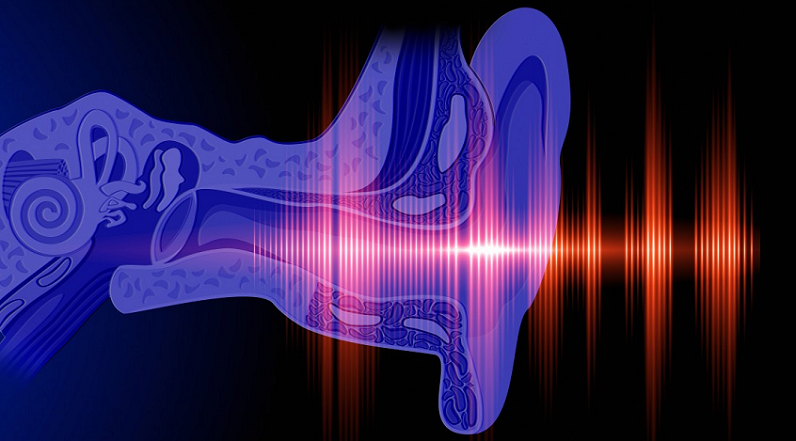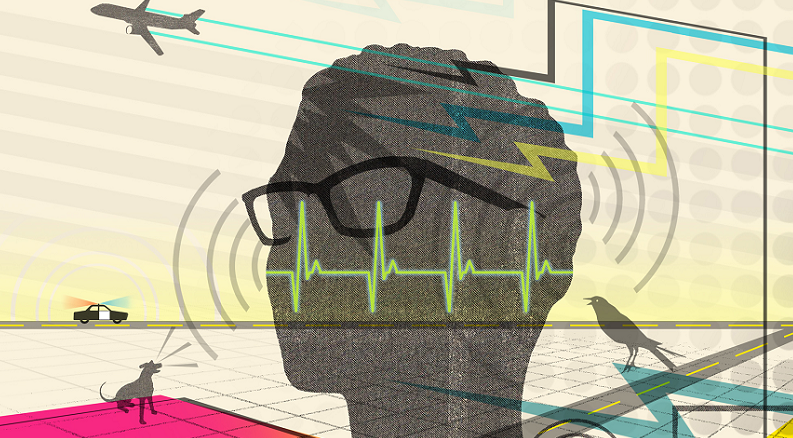
In our bustling modern world, the hum of daily life can sometimes grow deafening. From the blare of traffic horns to the distant echo of construction sites, the sounds of urbanization and technology encroach upon our mental spaces daily. But have you ever stopped to consider how this pervasive noise pollution affects our cognitive health and performance? As we navigate through the labyrinth of our daily routines, the invisible impact of ambient noise subtly chips away at our focus, memory, and even emotional well-being.
Contents
Introduction to Noise Pollution and Cognitive Health
As the world propels forward, embraced by technological advancements and urban expansion, a silent assailant travels alongside: noise pollution. In the age of skyscrapers, cars, and machinery, the once tranquil ambiance of nature finds itself often obscured by these relentless urban hums. Beyond merely being an annoyance, noise pollution has emerged as a pressing concern with ramifications on our cognitive health.
Definition of Noise Pollution
Noise pollution can be succinctly defined as unwanted or harmful sound that interferes with normal activities such as sleeping, conversation, or hearing. It isn’t just about loudness; the persistence, frequency, and unpredictability of noise can also make it “polluting.” While a beautiful piece of music played at high volume might be enjoyable to some, a persistent, out-of-tune car alarm at 2 a.m. is likely unwelcome to all.
Prevalence of Noise Pollution in Modern Society
It’s nearly impossible to escape the grasp of noise pollution in today’s world. Whether we’re in the heart of a bustling city, the middle of a suburban neighborhood, or even seemingly peaceful rural areas, signs of noise pollution persist. Urban areas grapple with the constant roar of traffic, the echoing rumbles of construction, and even the muffled conversations from a nearby apartment. Even in less populated areas, the sounds of agriculture, transportation, or technological devices become noticeable. This omnipresence makes understanding the implications of noise pollution even more crucial [1].
Brief Overview of Its Impact on Cognitive Health
At its core, noise is a sensory stimulus. When it becomes overwhelming or intrusive, our brain must work overtime to process or filter out the noise. This added strain can potentially divert our cognitive resources from other tasks, leading to reduced concentration, increased stress, and even memory challenges.

Understanding Noise Pollution
Before diving into the nuanced effects of noise pollution on cognitive performance, it’s essential to grasp what constitutes noise pollution and its various sources. By recognizing and categorizing these sounds, we can better appreciate the myriad of ways they penetrate our daily lives, and subsequently, our minds.
Different Types of Noises
Sounds in our environment vary immensely, and their potential to disrupt or distract is largely dependent on their nature. Let’s categorize these sounds based on their duration and volume levels.
Intermittent vs. Constant
Intermittent noises, like the sporadic honking of a car horn or an occasional passing siren, are irregular and unpredictable. These sudden, jarring noises can startle and disrupt concentration. In contrast, constant noises, such as the hum of an air conditioner or the distant drone of highway traffic, might fade into the background of our consciousness. However, even if we become somewhat accustomed to them, they still occupy a segment of our sensory input, potentially influencing our cognitive processes.
Volume Levels and Their Classification
Sound is measured in decibels (dB), with silence measuring at 0 dB and a rocket launch being well over 120 dB. Soft whispers range around 30 dB, a normal conversation stands at 60 dB, and city traffic can hover anywhere between 70-85 dB. Prolonged exposure to sounds above 85 dB can cause hearing damage. It’s not just about how loud a sound is; even quieter, persistent sounds can qualify as noise pollution if they are unwanted and disruptive [2].
Common Sources of Noise Pollution
To truly understand the omnipresence of noise pollution, we must identify its most prevalent sources. These sources, while seemingly innocuous individually, collectively contribute to the ambient noise that shapes our daily experiences.
Urban Settings
Cities are a cacophony of sounds. The incessant hum of traffic, the clatter of trains, the hustle and bustle of pedestrians, and even the distant tunes from street performers combine to create a constant background noise. As cities grow and become more densely populated, the intensity and diversity of these sounds escalate, making urban dwellers particularly susceptible to the effects of noise pollution.
Occupational Noises
Many workplaces are far from quiet retreats. From the machinery’s roar in factories to the din of busy office spaces or the constant buzz in retail environments, workers are regularly exposed to noise. Some professions, such as construction or airport ground staff, even require protective gear to guard against the dangerously high decibel levels they encounter daily.
Household Noises
Even the sanctity of our homes isn’t immune to noise pollution. Household appliances, entertainment systems, and even our neighbors can contribute to the noise levels we experience indoors. With the advent of open-floor plans and less soundproofing in many modern homes, internal sounds can become more noticeable and disruptive.
Technological Devices
In our digital age, we’re surrounded by gadgets. Phones beep with notifications, computers hum, and smart home devices respond with voices or alarms. These technological interjections, while often brief, can punctuate our environment with frequent, attention-diverting sounds [3].

The Human Brain and Sensitivity to Noise
To fathom the true impact of noise pollution on cognitive performance, we need to first understand our brain’s relationship with sound. The brain’s reaction to sound is multifaceted, rooted in both evolutionary mechanisms and complex cognitive processing. Recognizing how our brains are wired to respond to noise is essential in comprehending why certain sounds can be so disruptive.
The Evolutionary Perspective: Why We React to Noise
From the ancient rustling of predators in the underbrush to the present-day honk of a car horn warning of potential danger, our brain’s sensitivity to sound has been a survival tool. Historically, sudden or unfamiliar sounds could signal danger, prompting our ancestors to pay attention and prepare to react.
The Fight or Flight Response
This primitive alert system, termed the “fight or flight” response, is activated when we perceive potential threats. Unexpected noises can trigger the release of stress hormones like adrenaline. While this was beneficial when our ancestors needed to quickly evade predators, in modern settings, it translates to unnecessary stress when reacting to benign noises, like a phone ringing or a door slamming.
Noise as a Distraction
The evolutionary need to monitor our environments for danger also means that our brains are naturally inclined to divert attention to new or unexpected sounds. While this attentiveness was once beneficial, it now means that background noises can easily pull our focus away from tasks, leading to fragmented concentration and reduced productivity [4].
How the Brain Processes Sound
Sound processing is a remarkable feat performed by our brains. From detecting a sound to interpreting its meaning and deciding on a response, numerous intricate steps occur almost instantaneously.
The Journey of Sound
When sound waves enter our ears, they’re transformed into electrical signals that journey to the brain’s auditory cortex. Here, the sound is decoded, and the brain determines its source, relevance, and emotional content.
Filtering and Prioritizing
Not all sounds are treated equally. The brain has an incredible ability to filter out familiar or inconsequential noises, allowing us to focus on what’s relevant. However, when noise levels are high or when sounds are unpredictable, this filtering process becomes more challenging, leading to potential cognitive overload.
The Stress Response to Noise
Though sound processing is a normal and crucial brain function, exposure to chronic or high levels of noise can activate our stress response systems.
Elevated Cortisol Levels
Prolonged exposure to noise can lead to elevated cortisol levels, a primary stress hormone. High cortisol levels over extended periods are linked to a myriad of health issues, including cognitive decline, sleep disturbances, and even cardiovascular problems.
Mental Fatigue and Burnout
Dealing with persistent noise requires constant mental effort as the brain tries to filter out the irrelevant sounds and focus on tasks. Over time, this can lead to mental fatigue, reduced cognitive efficiency, and even symptoms of burnout.
Impact of Noise Pollution on Cognitive Functions
To fathom the true impact of noise pollution on cognitive performance, we need to first understand our brain’s relationship with sound. The brain’s reaction to sound is multifaceted, rooted in both evolutionary mechanisms and complex cognitive processing. Recognizing how our brains are wired to respond to noise is essential in comprehending why certain sounds can be so disruptive.
The Evolutionary Perspective: Why We React to Noise
From the ancient rustling of predators in the underbrush to the present-day honk of a car horn warning of potential danger, our brain’s sensitivity to sound has been a survival tool. Historically, sudden or unfamiliar sounds could signal danger, prompting our ancestors to pay attention and prepare to react.
The Fight or Flight Response
This primitive alert system, termed the “fight or flight” response, is activated when we perceive potential threats. Unexpected noises can trigger the release of stress hormones like adrenaline. While this was beneficial when our ancestors needed to quickly evade predators, in modern settings, it translates to unnecessary stress when reacting to benign noises, like a phone ringing or a door slamming [5].
Noise as a Distraction
The evolutionary need to monitor our environments for danger also means that our brains are naturally inclined to divert attention to new or unexpected sounds. While this attentiveness was once beneficial, it now means that background noises can easily pull our focus away from tasks, leading to fragmented concentration and reduced productivity.
How the Brain Processes Sound
Sound processing is a remarkable feat performed by our brains. From detecting a sound to interpreting its meaning and deciding on a response, numerous intricate steps occur almost instantaneously.
The Journey of Sound
When sound waves enter our ears, they’re transformed into electrical signals that journey to the brain’s auditory cortex. Here, the sound is decoded, and the brain determines its source, relevance, and emotional content.
Filtering and Prioritizing
Not all sounds are treated equally. The brain has an incredible ability to filter out familiar or inconsequential noises, allowing us to focus on what’s relevant. However, when noise levels are high or when sounds are unpredictable, this filtering process becomes more challenging, leading to potential cognitive overload.
The Stress Response to Noise
Though sound processing is a normal and crucial brain function, exposure to chronic or high levels of noise can activate our stress response systems.
Elevated Cortisol Levels
Prolonged exposure to noise can lead to elevated cortisol levels, a primary stress hormone. High cortisol levels over extended periods are linked to a myriad of health issues, including cognitive decline, sleep disturbances, and even cardiovascular problems.
Mental Fatigue and Burnout
Dealing with persistent noise requires constant mental effort as the brain tries to filter out the irrelevant sounds and focus on tasks. Over time, this can lead to mental fatigue, reduced cognitive efficiency, and even symptoms of burnout.
References
[1] Noise pollution and human cognition: An updated systematic review
[2] Road traffic noise and cognitive function in older adults
[3] Do Loud Noises Harm the Brain?
[4] The Effects of Noise on Cognitive Performance and Helplessness in Childhood
[5] Does noise affect learning? A short review on noise effects on cognitive performance in children

